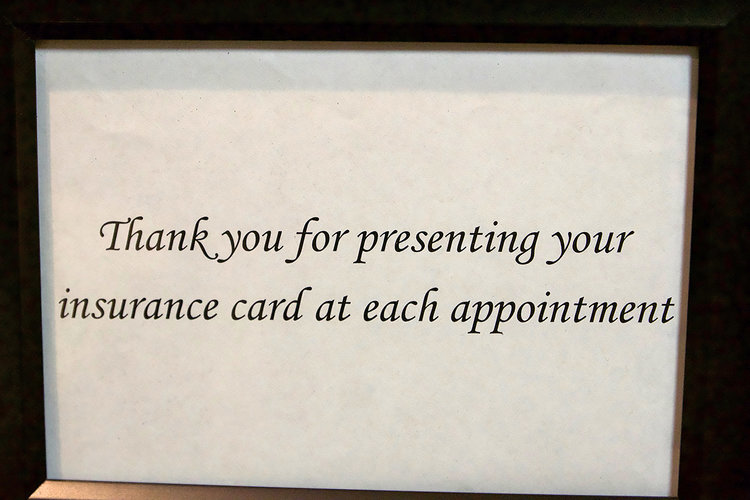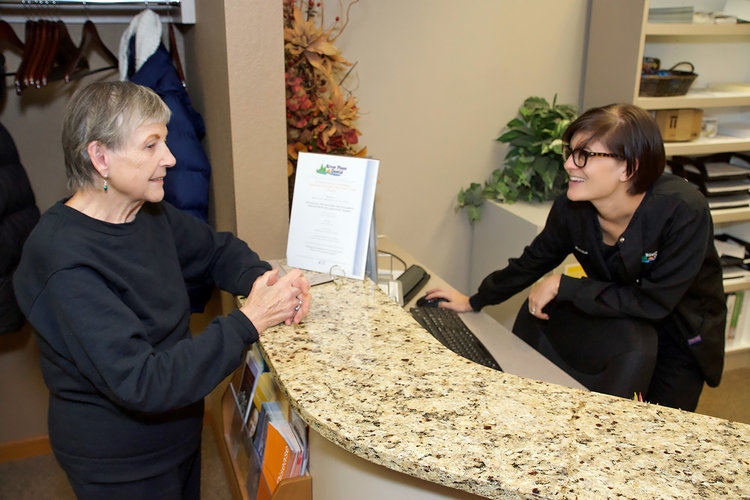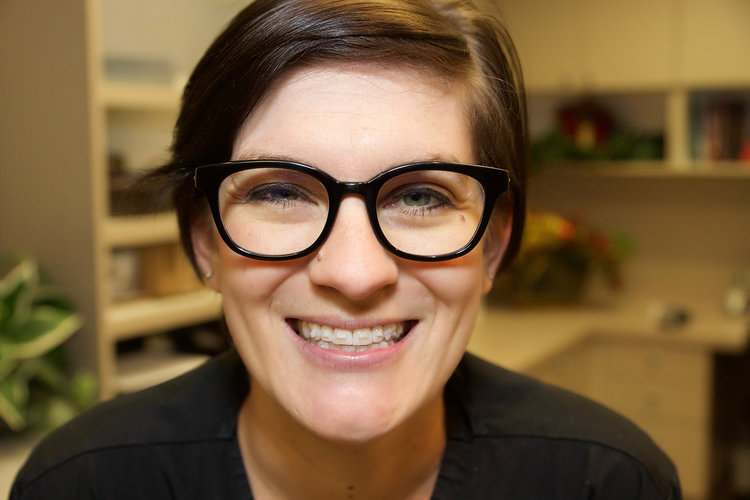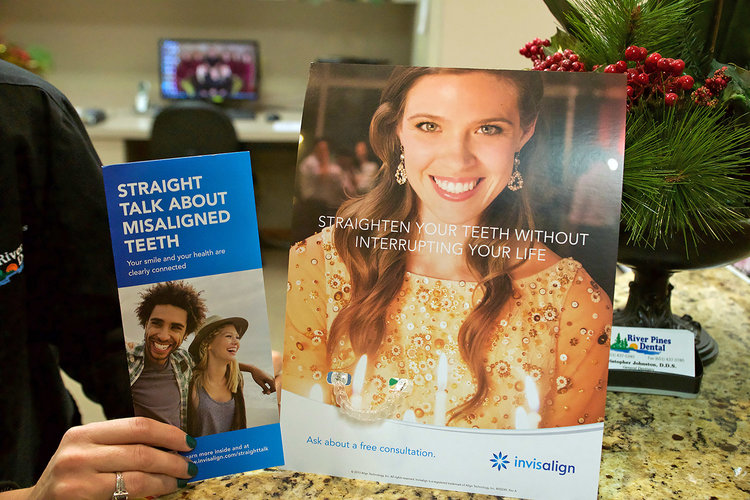We are open Monday from 8 A.M. to 6 P.M., Tuesday through Thursday 8 A.M. to 5 P.M., and Friday 8 A.M. to noon, and our hours do change seasonally.
Read moreHear how to contact River Pines Dental
You can call us anytime at 651-437-5340. Otherwise we do answer through our Facebook and our website www.RiverPinesDental.com.
Read moreUse those dental benefits before you lose them
Most Dental Insurance Plans and Flex Spending do end at the end of the current calendar year. So it's good to get in and use those benefits before you lose them.
Read moreAnna talks about a holiday gift idea from River Pines Dental
We do offer our Oral B Toothbrushes for $112.22, and there's also a current rebate for $20 through Oral B. Get those for the Christmas season! They retail at Target and Wal-Mart for $160.
Read moreHear where River Pines Dental is located
We are located on the corner of 55 and Pine in the Central Commons Building, address is 925 Highway 55 Suite 104.
Read moreAnna talks about Invisalign, available at River Pines Dental
Right now River Pines Dental is offering Invisalign...
Read moreYes, Coffee Might Actually Be Good for Your Teeth
Image / Jordan Sanchez
If you have a desire to stain your teeth, consuming multiple cups of coffee a day is a sure way to get you there. That much you likely already know. What you may not know, though, is that drinking coffee in moderation can actually help you protect your teeth, because of coffee’s unique anti-bacterial properties. And, coffee isn’t alone in this regard. Tea, too, has some pretty marvelous properties, despite its propensity to stain teeth as well! So, if you’re a fan of a cuppa’ warm joe or tea in the morning, read on … you’ve got one more reason not to give it up!
The main reason coffee and tea are good for you? Antioxidants.
Scientists believe antioxidants (polyphenols and catechins, specifically) help reduce inflammation in the body, aid in reducing cholesterol and high blood pressure, and protect against heart attack and stroke. They also help reduce inflammation in your mouth. Find ‘em in fruit, vegetables, red wine, coffee, and chocolate to name a few.
If you do want a good reason to keep drinking coffee and tea, though, the trick is to consume each without cream and sugar (sugar and cream feed bad bacteria). You may also want to enjoy them “warm” as opposed to excessively hot. There is some speculation about how the temperature of your beverage can affect the lining of your esophagus. Visit this article for more on that concern.
Fluoride, trigonelline and caffeine
- Tea: The benefit? Fluoride!
We all know that at prescribed and monitored levels, fluoride is good for our teeth. But did you know black tea contains fluoride because of how its leaves absorb fluoride from the soil? More, it seems, than the plain glass of water coming out of your faucet, even! This, of course, can have good and bad complications for your teeth. If you drink from a non-fluoridated water source, ask your dentist or physician if they think it may be beneficial to drink a bit of tea from time to time. Over-consuming black tea, though, has been shown to affect rates of skeletal fluorosis.
So, as with anything in life, moderation is key. And any time you want to start doing more of something you’re not doing already, from ingesting new foods to ramping up the exercise, always consult with your family physician first. - Coffee: The benefit? Trigonelline!
Trigonelline is what’s known as an alkaloid. And this alkaloid appears to be of specific benefit to our teeth. It’s found in its highest levels in Arabica coffee beans, and research suggests it interferes with cavity-causing bacteria’s ability to adhere itself to tooth enamel. Research is ongoing, but it does seem to be another feather-in-the-cap of your morning “joe.” - Tea and Coffee: The benefit? Caffeine!
Ah, caffeine – beloved and vilified. Yes, we know. And, we know that caffeine can cause some people to experience anxiety and increased stress, which could lead to teeth grinding and clenching. And that is most certainly NOT good for your teeth. Or, jaw. Or, bone structure, in general.
Where caffeine is a benefit, though, is in its apparent ability to impact longevity in patients with oral cancer. And, that’s something to think about. Read up on the study yourself and make a decision that’s best for you. Recent research also suggests caffeine in coffee may help protect individuals from liver cancer as well.
SO! Everything in moderation, right? If you like a morning beverage, we hope this little primer gives you a bit more to think about!











